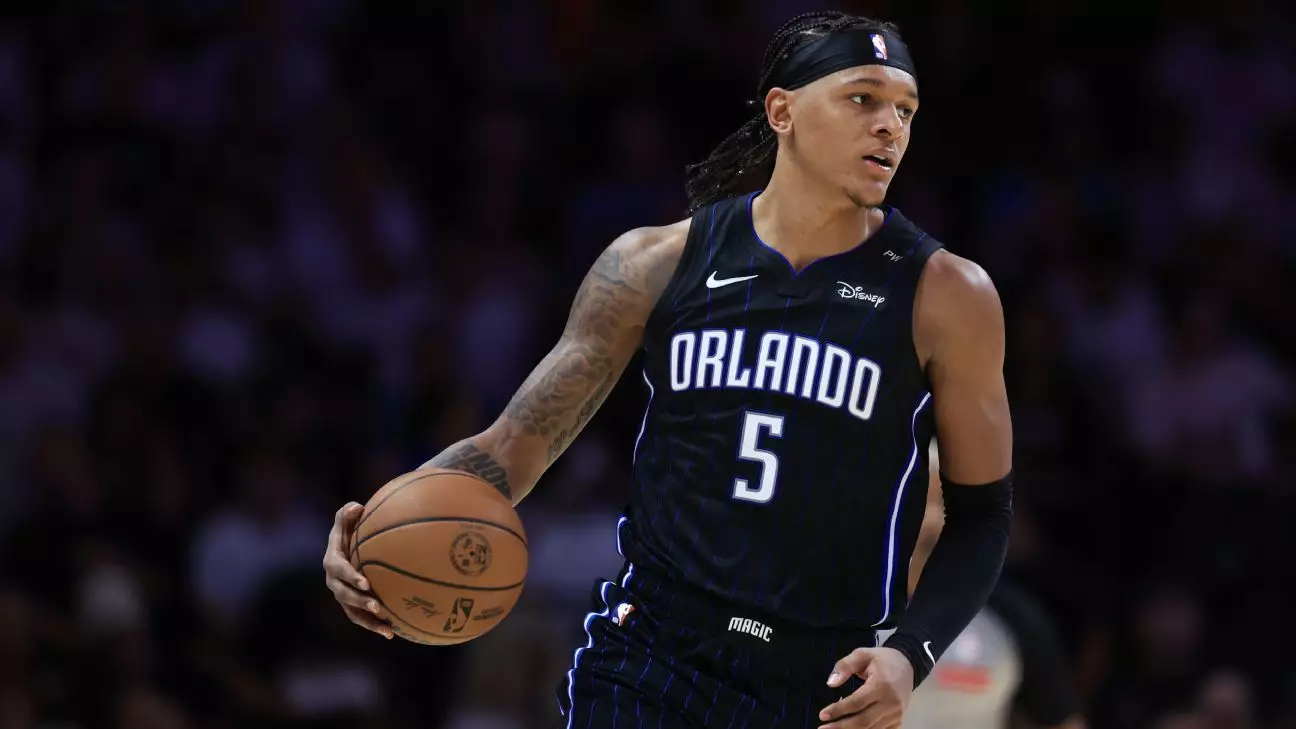Paolo Banchero, the dynamic forward for the Orlando Magic, recently faced an unexpected setback with a torn right oblique muscle. This injury, sustained during a loss to the Chicago Bulls, has placed him on the sidelines for an indeterminate period, generating a cloud of uncertainty not only for Banchero but also for the team at large. The announcement came swiftly after the diagnosis was confirmed, and it’s a stark reminder of how fragile success can be in the high-stakes arena of professional basketball.
Banchero was in the midst of an explosive season, averaging 29 points per game prior to the injury, which ranked him as one of the top scorers in the NBA. His performance had produced early buzz around the possibility of him making a significant impact in the league’s MVP talks. Yet, with this diagnosis, Banchero faces a challenging path ahead—one that might sideline him for a critical stretch of the season, potentially depriving him of accolades that seem within reach.
Reflecting on the injury, Banchero expressed his frustrations in an interview, sharing that he felt something was wrong immediately after the incident but could not pinpoint the severity. The emotional toll of the situation is significant. “It sucks. There’s no other way to put it,” said Magic coach Jamahl Mosley, capturing the mood surrounding the team. It is indeed the kind of news that reverberates through the locker room, testing the resolve of teammates and the coaching staff alike.
This situation presents a dual-layered challenge for the Magic. On one hand, they must now cope without their leading scorer and player who had been uplifting the team’s performance. On the other hand, it provides a crucial opportunity for other players on the roster to step up and fill the void—essentially a chance for growth and testing their skills under pressure. Coach Mosley remains optimistic, positioning the situation as a catalyst for others on the team to embrace their roles and elevate their game, emphasizing the importance of resilience.
The Knock-On Effects
The prognosis of an absence stretching four to six weeks is troubling, especially as it appears likely that Banchero will miss at least 21 games. Such time away from the court can complicate a player’s rhythm and development, especially for someone still finding their footing early in their career following a stellar rookie season. The new voting policies for end-of-season awards further complicate matters; missing substantial time may disqualify him from receiving recognition that he might have otherwise earned.
Banchero, known for his unwavering positivity, vowed to stay engaged and is planning to travel with the team despite his injury. He intends to continue learning from the sidelines, attending meetings, and absorbing the dynamics of game strategy from a different perspective. This mental involvement can indeed foster a different type of growth, yet it remains a bittersweet consolation for a player who thrives on the adrenaline of competition.
As the Magic navigate this tumultuous period, Banchero’s absence will undoubtedly mark a pivotal moment in the season. How effectively the team can adapt will not only influence their immediate performance but will also impact Banchero’s comeback effectiveness. His eventual return will demand the recalibration of roles within the lineup, and the team has to ensure they maintain a competitive edge during his rehabilitation.
Moreover, the fans are left in anticipation, eager to see their young star return to form. Banchero’s trajectory in the NBA is one of tremendous promise, and while this injury is a setback, it can also serve as a formative experience. With patience and the right recovery plan, he may return even stronger, ready to reclaim his position as a leading player in the league.
The journey ahead is crucial for both Paolo Banchero and the Orlando Magic. While the injury is undoubtedly a setback, it also opens doors for new possibilities and highlights the themes of perseverance and adaptability that define professional sports. As the team moves forward, the collective focus will remain fixed on the goal of overcoming adversity, driving towards greater aspirations in a challenging season.


Leave a Reply